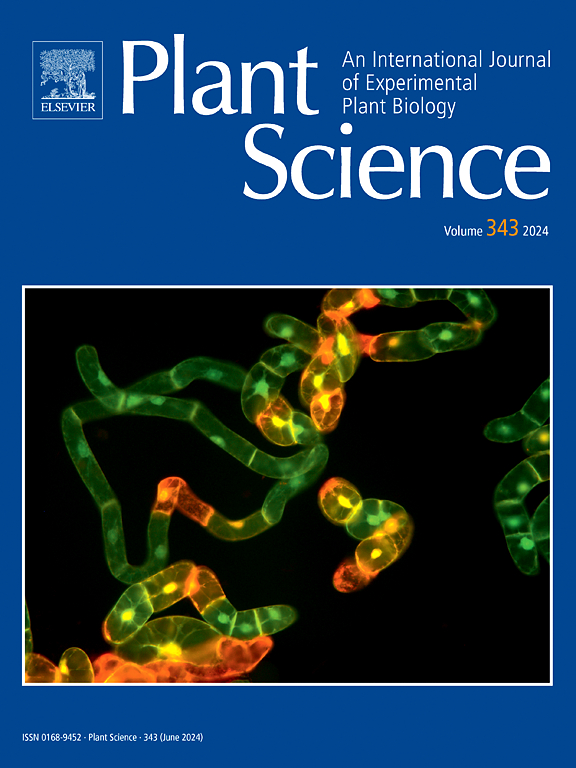Deciphering the complex roles of leucine-rich repeat receptor kinases (LRR-RKs) in plant signal transduction
IF 4.2
2区 生物学
Q2 BIOCHEMISTRY & MOLECULAR BIOLOGY
引用次数: 0
Abstract
Leucine-rich repeat receptor kinases (LRR-RKs) are essential receptor protein kinases in plants that are the key to signal perception and responses and central to regulating plant growth, development, and defense. Despite extensive research on the LRR-RK family, gaps persist in our understanding of their ligand recognition and activation mechanisms, interactions with co-receptor, signal transduction pathways, and biochemical and molecular regulation. Researchers have made significant advances in understanding the critical roles of LRR-RKs in plant growth and development, signal transduction, and stress responses. Here, we first summarized the gene expression levels of LRR-RKs in plants. We then reviewed the conservation and evolutionary relationships of these genes across different species. We also investigated the molecular mechanisms underlying the variations in LRR-RK signaling under different environmental conditions. Finally, we provide a comprehensive summary of how abiotic and biotic stresses modulate LRR-RK signaling pathways in plants.
富亮氨酸重复受体激酶(LRR-RKs)是植物中重要的受体蛋白激酶,是信号感知和反应的关键,也是调节植物生长、发育和防御的核心。尽管对 LRR-RK 家族进行了广泛的研究,但我们对其配体识别和激活机制、与共受体的相互作用、信号转导途径以及生化和分子调控的认识仍然存在差距。研究人员在了解 LRR-RKs 在植物生长发育、信号转导和胁迫响应中的关键作用方面取得了重大进展。在此,我们首先总结了植物中 LRR-RKs 的基因表达水平。然后,我们回顾了这些基因在不同物种中的保护和进化关系。我们还研究了不同环境条件下 LRR-RK 信号转导变化的分子机制。最后,我们全面总结了非生物和生物胁迫如何调节植物中的 LRR-RK 信号通路。
本文章由计算机程序翻译,如有差异,请以英文原文为准。
求助全文
约1分钟内获得全文
求助全文
来源期刊

Plant Science
生物-生化与分子生物学
CiteScore
9.10
自引率
1.90%
发文量
322
审稿时长
33 days
期刊介绍:
Plant Science will publish in the minimum of time, research manuscripts as well as commissioned reviews and commentaries recommended by its referees in all areas of experimental plant biology with emphasis in the broad areas of genomics, proteomics, biochemistry (including enzymology), physiology, cell biology, development, genetics, functional plant breeding, systems biology and the interaction of plants with the environment.
Manuscripts for full consideration should be written concisely and essentially as a final report. The main criterion for publication is that the manuscript must contain original and significant insights that lead to a better understanding of fundamental plant biology. Papers centering on plant cell culture should be of interest to a wide audience and methods employed result in a substantial improvement over existing established techniques and approaches. Methods papers are welcome only when the technique(s) described is novel or provides a major advancement of established protocols.
 求助内容:
求助内容: 应助结果提醒方式:
应助结果提醒方式:


